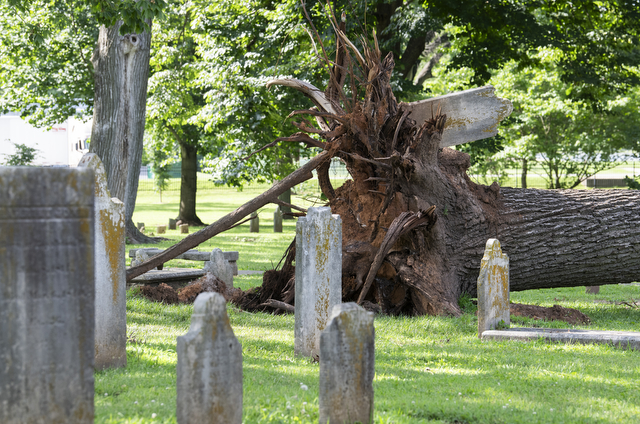Check scams Canadian-born
Published 12:00 am Sunday, January 22, 2006
It seems I got ahead of myself last week. I issued a general warning about insidious e-mail scams, but common as those are, they haven’t entirely superseded old-fashioned phone and mail fraud.
My rules of thumb – “if it sounds too good to be true, it is”; and “when in doubt, check it out” – certainly apply here, too. But I should add a third: No one will send you something for nothing – or even too much of something, especially money.
That principle may save a few area residents who are offered exactly that. One of them, Mark Porreca, contacted me about a strange deal he’d encountered.
Porreca sells cars and trucks through the Daily News classifieds. He advertised a pickup in December, and two days after Christmas a woman called, apparently from Winnipeg, Manitoba.
She didn’t ask about the vehicle’s condition, or anything else; she only wanted to know if he still had it for sale, and they quickly agreed on a $3,250 price, Porreca said.
The woman said she’d send a cashier’s check for it, then arrange for someone to pick up the truck and drive it to Canada.
In due course, a Purolator envelope arrived, bearing a check marked “State Employees Credit Union of Maryland,” Porreca said.
But the check was for $5,000, not $3,250. That set off the first alarm bell. Why would someone send an extra $1,750 for an old truck?
So Porreca went to his bank, BB&T, to ask if anything similar had come through – and if the check was real.
While he was in the office, another bank customer called, asking exactly the same question: She’d been “overpaid” by check, from Canada, for a four-wheel drive she was selling.
Porreca said BB&T told him they usually hold such checks for five days. Given his suspicions, they pushed that back to about three weeks.
Then Porreca called Bowling Green police. And found he wasn’t the first.
More than half a dozen people have contacted city police about similar situations, said Officer Barry Pruitt, crime analyst.
“Every story’s pretty much the same,” he said.
Apparently scammers surf online ads for sale items, Pruitt said.
After a check for too much money arrives, the sender will call and say, “Oh, my wife messed up and sent too much. Can you just deposit it, then wire me the difference from Wal-Mart? I’ll pick up the car in a few days.”
But they’re counting on people wiring money back before the cashier’s check has time to really clear the bank, and there’s no real intention of buying a vehicle, Pruitt said.
“Actually they have no intention of picking up the vehicle,” he said. “What they’re wanting is that overage amount.”
The checks, it turns out, are counterfeit – leaving locals with an angry bank that refuses to honor it, a vehicle still waiting to be sold, and a farewell wave to whatever amount they wired to the north.
Five bogus checks marked “State Employees Credit Union of Maryland” turned up within two days, Pruitt said.
“We’ve seen a lot of counterfeit checks come in scams,” he said.
They’re printed on actual check stock, and so look and feel real. The credit union really exists, and is a legitimate business; the routing number is real, too, but not for that bank, Pruitt said.
So even for a bank, it may take several rounds of examination to determine that they’re counterfeit, eating up several days in which hapless victims could have wired their own money back to the scammers, he said.
A federal task force is tracking this scam in conjunction with the Royal Canadian Mounted Police, but that doesn’t mean anyone can expect to get money back, or even the satisfaction of an arrest, Pruitt said.
“I have never heard of anyone being prosecuted for this crime,” he said.
The current generation of scammers uses prepaid cell phones, sends its bogus checks by package-delivery service and collects its loot by wire transfer, making it hard to trace, Pruitt said.
“They’re covering their tracks pretty well,” he said.
Local banks have been putting holds on payment of all such checks until they, well, check out, Pruitt said. And it’s not always cars; fake checks have come to Bowling Green homes for supposed government loans and lottery winnings, he said.
But in every bogus-check case, each has apparently included more money than was promised, Pruitt said.
In one related case, someone was sent a dozen $100 bills for a purchase of half that amount, he said. The bills, of course, were counterfeit.
A man called Porreca on Jan. 10 and asked if the check had arrived, still expressing interest in picking up the vehicle. Porreca told him there was a hold on the check, so the man said to call back “when it cleared.”
Hoping to have a little fun, Porreca tried calling the man back later to tell him the check had cleared, and asking how he wanted to pick up the vehicle. Porreca was going to offer to put the “extra” money in an envelope on the truck seat – and park the truck outside the Bowling Green Police Department, he said.
But there was no answer on any of three given numbers, so he left a message.
“He hasn’t called me back, but I did get a call from the bank (Tuesday), and the check is counterfeit,” Porreca said.
– Jim Gaines can be reached at jgaines@bgdailynews.com.






